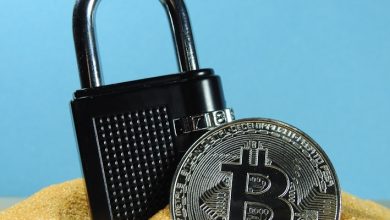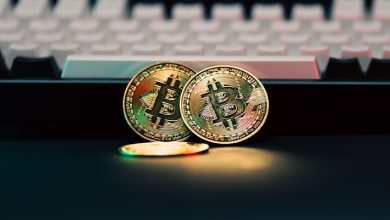How to Use Decentralized Exchanges (DEXs) Safely

- Understanding the basics of decentralized exchanges
- The importance of security when using DEXs
- Tips for safeguarding your funds on decentralized exchanges
- Comparing centralized exchanges vs decentralized exchanges
- Common pitfalls to avoid when trading on DEXs
- The future of decentralized exchanges in the crypto space
Understanding the basics of decentralized exchanges
Decentralized exchanges (DEXs) are platforms that operate without a central authority or intermediary. Instead, they allow users to trade cryptocurrencies directly with each other. Understanding the basics of decentralized exchanges is crucial for safely navigating this new and exciting space.
One key difference between DEXs and centralized exchanges is the way they handle user funds. In a DEX, users retain control of their funds throughout the trading process, reducing the risk of hacks or theft. This provides a greater level of security and privacy for traders.
Another important aspect of DEXs is their use of smart contracts to facilitate trades. Smart contracts are self-executing contracts with the terms of the agreement directly written into code. This automation helps to eliminate the need for intermediaries and ensures that trades are executed fairly and transparently.
When using a DEX, it is essential to understand how to properly manage your private keys. Private keys are used to access your funds on the blockchain, and keeping them secure is vital to protecting your assets. Be sure to store your private keys in a safe place and never share them with anyone.
Overall, decentralized exchanges offer a new way to trade cryptocurrencies that is more secure, private, and transparent than traditional exchanges. By understanding the basics of DEXs and following best practices for security, you can safely take advantage of this innovative technology.
The importance of security when using DEXs
Security is paramount when utilizing decentralized exchanges (DEXs). Due to the nature of DEXs, where users have complete control over their funds and transactions, the responsibility falls on the individual to take necessary precautions to protect their assets. In the absence of a central authority overseeing the exchange, security measures become even more critical.
One of the main security concerns when using DEXs is the risk of hacking and scams. Malicious actors may attempt to exploit vulnerabilities in the platform or target unsuspecting users to steal their funds. Therefore, it is essential to be vigilant and employ best practices to safeguard against such threats.
To enhance security when using DEXs, it is advisable to utilize hardware wallets or cold storage solutions to store your cryptocurrencies. By keeping your funds offline, you reduce the risk of them being compromised in the event of a cyber attack. Additionally, enabling two-factor authentication (2FA) and using strong, unique passwords for your accounts can add an extra layer of security.
Furthermore, it is crucial to research and choose reputable DEX platforms that have a track record of security and reliability. Reading reviews, checking for any past security incidents, and ensuring the platform follows industry best practices can help mitigate potential risks. Remember, the security of your assets ultimately lies in your hands, so it is imperative to stay informed and proactive in protecting your investments.
Tips for safeguarding your funds on decentralized exchanges
When using decentralized exchanges (DEXs), it is crucial to take necessary precautions to safeguard your funds from potential risks. Here are some helpful tips to ensure the security of your assets:
- Only trade with reputable tokens: Stick to well-known tokens with a proven track record to minimize the risk of trading with unreliable assets.
- Use hardware wallets: Consider storing your funds in a hardware wallet rather than keeping them on the exchange to reduce the risk of hacking.
- Enable two-factor authentication (2FA): Adding an extra layer of security like 2FA can help prevent unauthorized access to your account.
- Avoid sharing private keys: Never share your private keys with anyone, as this information can be used to access your funds without your consent.
- Double-check the recipient’s address: Before making any transactions, always verify the recipient’s address to avoid sending funds to the wrong wallet.
By following these simple yet effective tips, you can protect your funds while trading on decentralized exchanges and enjoy a secure trading experience.
Comparing centralized exchanges vs decentralized exchanges
When comparing centralized exchanges to decentralized exchanges, it is important to consider the key differences between the two. Centralized exchanges are platforms operated by a single entity, where users trade assets that are held by the exchange itself. On the other hand, decentralized exchanges operate on a blockchain network and allow users to trade assets directly with each other, without the need for an intermediary.
One of the main benefits of using a decentralized exchange is the increased security it offers. Since trades are executed directly on the blockchain, there is no central point of failure that can be targeted by hackers. In contrast, centralized exchanges are more vulnerable to security breaches, as they store large amounts of assets in a single location.
Another advantage of decentralized exchanges is the greater control users have over their funds. When using a decentralized exchange, users retain ownership of their assets throughout the trading process. This is in contrast to centralized exchanges, where users must deposit their assets into a wallet controlled by the exchange, leaving them vulnerable to potential loss or theft.
While decentralized exchanges offer increased security and control, they may also have some drawbacks compared to centralized exchanges. Decentralized exchanges often have lower liquidity and slower transaction speeds, as trades must be confirmed on the blockchain. Additionally, decentralized exchanges may have less user-friendly interfaces and fewer trading pairs available.
Ultimately, the choice between centralized and decentralized exchanges will depend on your individual needs and preferences. If security and control over your funds are top priorities, a decentralized exchange may be the best option for you. However, if you prioritize liquidity and a wide range of trading options, a centralized exchange may be more suitable.
Common pitfalls to avoid when trading on DEXs
When using decentralized exchanges (DEXs), it is crucial to be aware of common pitfalls that can jeopardize the safety of your trades. By avoiding these pitfalls, you can protect your assets and trade with confidence.
- One common pitfall to avoid is using weak passwords that are easily guessable. Make sure to create strong, unique passwords for your DEX accounts to prevent unauthorized access.
- Another pitfall is falling victim to phishing scams. Be cautious of any unsolicited emails or messages asking for your login credentials or personal information.
- It is also important to double-check the smart contracts of the tokens you are trading to ensure they are legitimate. Scammers may create fake tokens to deceive unsuspecting traders.
- Avoid sharing your private keys or seed phrases with anyone, as this could lead to a security breach and potential loss of funds.
- Lastly, be wary of fake DEX websites that mimic legitimate platforms. Always verify the URL and ensure you are on the correct website before making any trades.
The future of decentralized exchanges in the crypto space
Decentralized exchanges (DEXs) have been gaining popularity in the crypto space due to their enhanced security and privacy features. The future of DEXs looks promising as more traders are becoming aware of the benefits of trading on these platforms. With the rise of decentralized finance (DeFi) applications, DEXs are expected to play a significant role in the ecosystem.
As DEXs continue to evolve, we can expect to see improvements in user experience, liquidity, and trading pairs. Developers are working on implementing new features such as limit orders, stop-loss orders, and margin trading to make DEXs more competitive with centralized exchanges. Additionally, cross-chain compatibility will allow users to trade assets across different blockchain networks seamlessly.
Regulatory challenges may arise as DEXs become more mainstream, but developers are working on solutions to ensure compliance without compromising the decentralized nature of these platforms. By incorporating decentralized identity verification and anti-money laundering protocols, DEXs can address regulatory concerns while maintaining user privacy.
Overall, the future of decentralized exchanges in the crypto space looks bright. With ongoing innovations and improvements, DEXs are poised to become the go-to trading platforms for users who prioritize security, privacy, and control over their assets. As the crypto industry continues to mature, DEXs will play a crucial role in shaping the future of finance.



